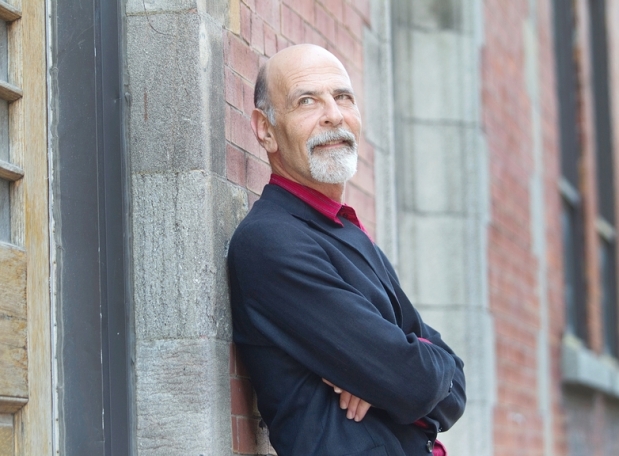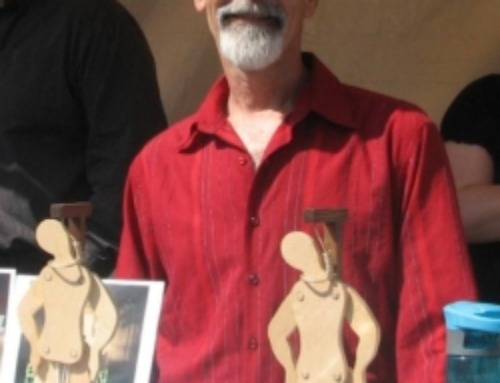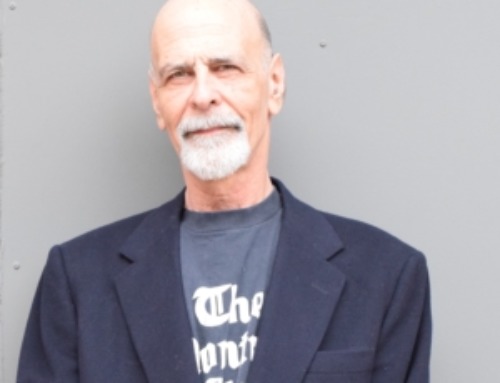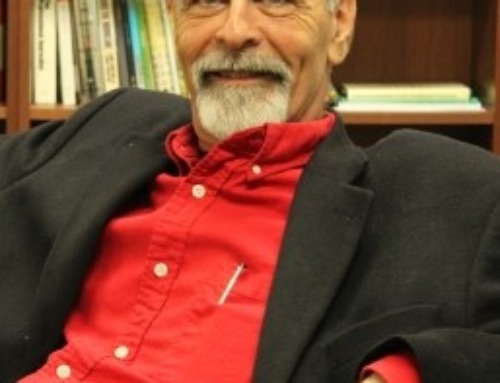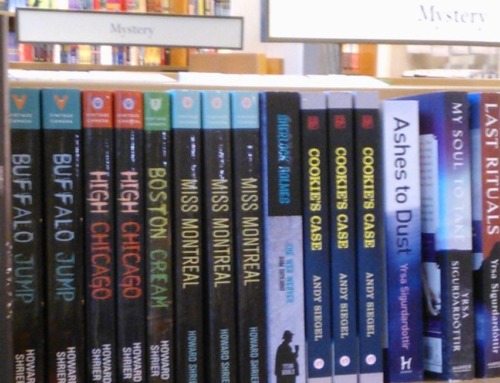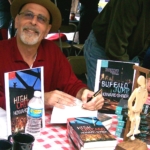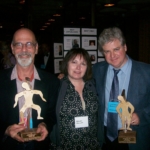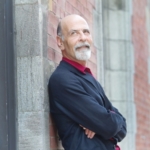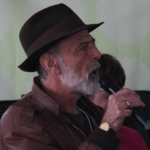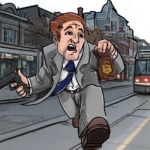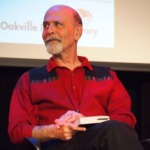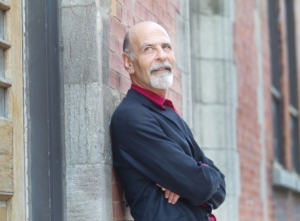
Photo: Montreal Gazette, 2013
Crime reporter turned mystery writer sets his latest novel in Montreal
By Bill Brownstein, Montreal Gazette
It’s back to where it all began for Howard Shrier. And it’s about time too.
The Montreal native kicked off his career as a crime reporter here for the Montreal Star, and now, 25 years later, he’s an acclaimed mystery writer and has returned to the local scene — in print, anyway — where his latest thriller, Miss Montreal (Vintage Canada, 288 pages, $19.95), is set.
Once again, Shrier’s anti-hero is Jonah Geller, arguably the most unlikely gumshoe to have ever pounded the pavement and/or bad guys. This marks the fourth foray into crime-busting for Shrier, who first let Geller loose in Buffalo Jump in 2008 and brought him back in High Chicago a year later, followed by Boston Cream in 2012.
Shrier won Arthur Ellis Awards — for excellence in Canadian crime writing — for both Buffalo Jump and High Chicago.
Though he has resided in Toronto for decades, Shrier, 56, has clearly not lost touch with Montreal and its ever-volatile social, political, cultural and crime scenes. All enter into the fray in Miss Montreal, which does not focus on the fabled and now defunct Décarie Blvd. resto of yore, but rather on the brutal murder of Geller’s childhood friend, Sammy, a crusading newspaper columnist. The book touches on everything from racism to religious fanaticism, gun-running to — who knew? — political corruption in this city.
“Montreal has always held a certain amount of mystery, intrigue and attraction for me,” says the reed-thin, balding Shrier over mineral water at a downtown bistro. “It just took a while to get around to setting the story here and writing the book.
“Sammy is in a sense what I would have liked to have been at one point in my life — a city affairs columnist. When I went to journalism school at Concordia, I wrote a column for the student newspaper. Sammy is my ideal — someone who writes with humour, passion and fury sometimes, but all with the goal of making Montreal a better city.”
Sammy is not based on any particular media character, but Shrier does allow that his fictional creation did win the much-coveted Nicky Award for his civic affairs coverage — named for crusading boulevardier Nick Auf der Maur.
Players from Montreal’s past — circa 1950 — intrigue Shrier for fictional purposes.
Shrier almost apologizes for taking this much time to use Montreal as a backdrop for his pulp fiction. But it’s his knowledge of the city’s inner workings that makes his latest caper so credible — and frighteningly so. Yet, while plunging into the city’s multi-layered cultural mosaic, the novel takes many unexpected turns.
“When I was writing the book, it was at the time of the run-up to the last provincial election here, with new parties appearing on the horizon,” Shrier says. “It gave me the opportunity to write about some of the newer issues Quebec faces and to keep up with the latest shenanigans of the political leaders and others.”
Which, some might suggest, is truly the stuff of fiction.
The shenanigans of political leaders and players from Montreal’s past — circa 1950 — also intrigue Shrier for fictional purposes. So much so that he is contemplating a Geller-less novel “when Montreal was this wild, wide-open, Havana North, Vegas North city.” His focus would be an ethically entangled cop caught between forces of sin and morality.
Shrier notes that while life has evolved here, much remains the same from his days on the crime, political and news beat in the late ’70s, first with CJAD and later with the Montreal Star, until the paper shut down operations in ’79. The Parti Québécois had been in power for three years, with René Lévesque the premier of the province. Anglo migration from here and along the 401 to Toronto was well underway.
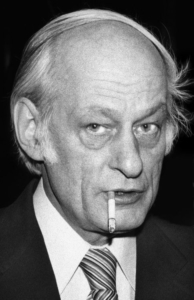
Separatist icon Rene Levesque once bummed a smoke off me.
“Lévesque once bummed a cigarette from me at a press conference back then. It was one of my proudest moments,” Shrier cracks. “Apart from that, I was covering murders, fires, car crashes and train wrecks. As a crime reporter, you’re coming to scenes to get your information quickly.
“Not one incident from my crime reporting has really inspired any of my books, but the overall experience did. But more related to what I’m doing now is that I started reading a lot of crime fiction back in my reporting days,” explains Shrier, whose crime-writing influences are Ross Macdonald and Raymond Chandler.
Shrier does, however, point out that it’s mostly in fiction where private investigators solve crimes, and that police forces fare far better in real life. “They have the manpower, the technology and the forensics. They have the whole state at their disposal.
“But in fiction, the police can’t solve the crime, otherwise the private eye will then have nothing to do,” he quips. “In fiction, the private eyes tend to come into the case long after the crime has been committed and start their own investigations.”
Also, in fiction, the gumshoe can hook up with some unsavoury forces to get to the bottom of an investigation. And Shrier’s Geller has a real doozy of an accomplice, former mob assassin Dante Ryan.
“I had done extensive research on noted mobsters like Sammy the Bull and John Gotti to build the character of an assassin like Ryan,” says Shrier, whose books have been optioned by a Toronto production company which, in turn, has been developing a pilot TV script with René Balcer, the former Montrealer and Emmy-winning writer and director of Law & Order fame.
Shrier wanted his private eye to be different: an urban, secular, funny guy
The hardest character for Shrier to develop was Geller. “I was trying to find a character who could be a little bit like me. But let’s face it: private eyes in fiction are of no determinate background. They may be loosely Irish. Often they drink a lot and maybe their fathers were cops. I know a couple of writers who grew up in families like that. But I didn’t.”
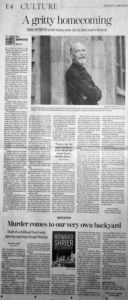
The Gazette’s coverage of Miss Montreal included this profile and a rave review.
Shrier wanted his private eye to be different, an urban, secular, funny guy: “But I did want him to sound and feel like me a little, except someone a little bit more brave, fit, active than me. And a much better fighter.”
And, oh yeah, someone who could actually shoot straight — unlike Shrier who has never even fired a handgun — although he plans to head to a firing range soon and learn the basics of blasting.
“It really took me a while to get Geller’s voice to come through. A voice that I like and that I can write with, one that is somewhat believable as a private eye.
“Jonah changes a little from book to book. The experiences that he has had, the violence that he witnesses or instigates, the wounds that he has suffered — he carries all that with him. He’s not quite as carefree as he was. He’s become a little darker.”
But once that character has been developed, it’s simply a matter of moving locales. In Geller’s situation, he had no choice but to come back to Canada. Readers of Shrier’s last opus, Boston Cream, will recall that Geller was given the boot not just from Beantown, but from the U.S. as well.
So the scene could possibly shift to Toronto for Shrier’s next instalment in the Geller series. Word has it that Hogtown boasts a mayor who just may make a fascinating subject for a book — fictional or otherwise.
